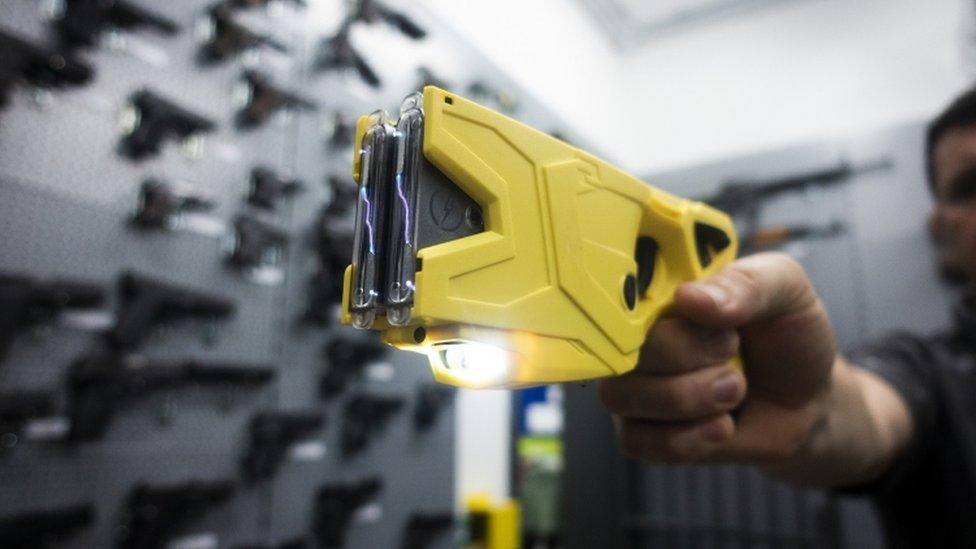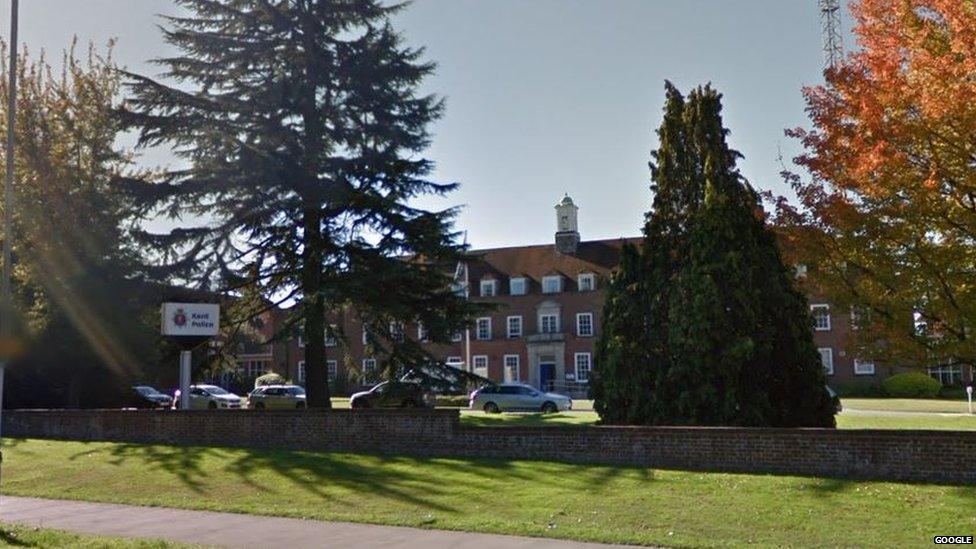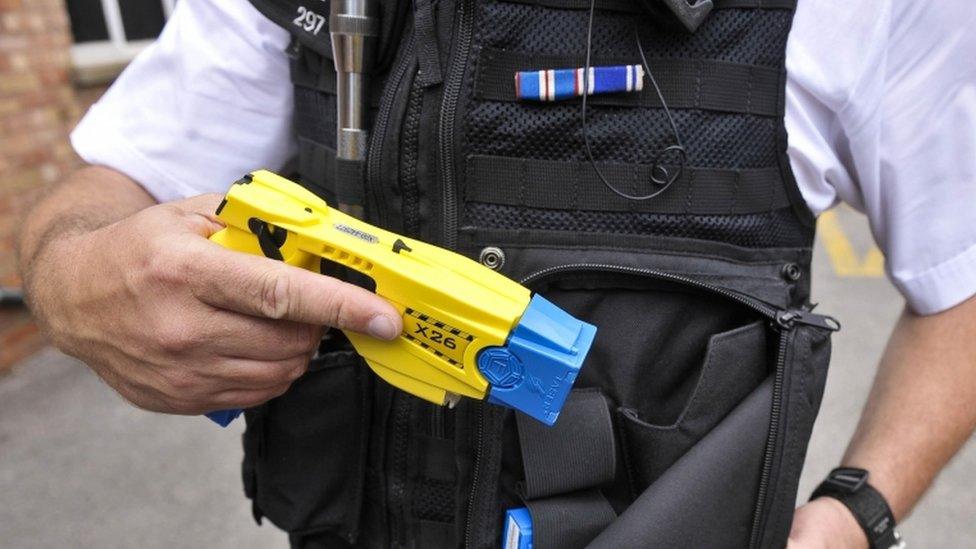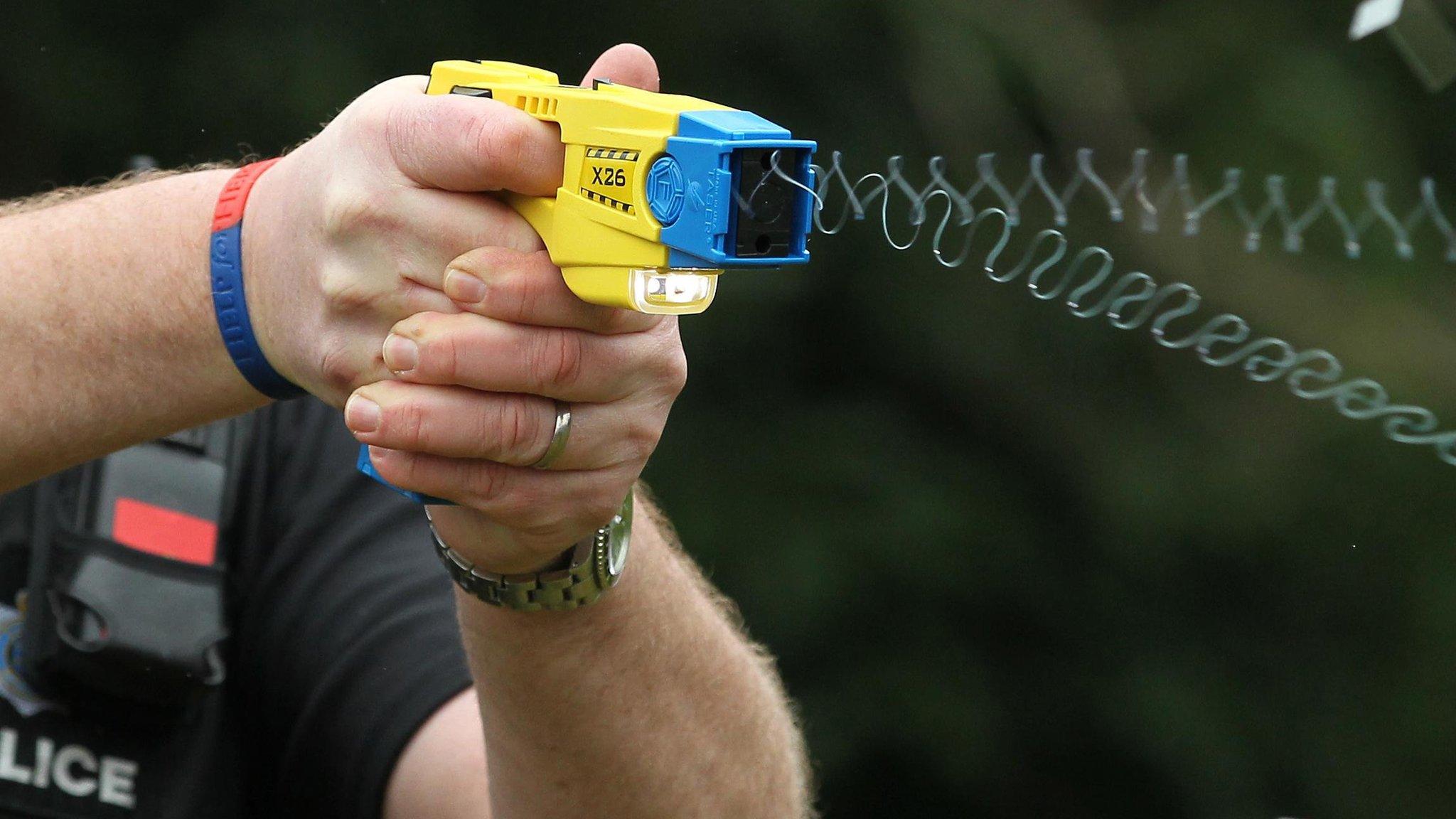Kent Police plans to train special constables to use Tasers
- Published

Kent Police has started training special constables in the use of Tasers
Kent Police plans to become the first force to arm special constables with Tasers.
The force has started a year-long programme with a view to having 1,300 Taser trained officers in total by September 2020.
Chiefs said the plan was prompted by a rise in the number of county lines gangs and assaults on officers.
The force has applied for Home Office permission to equip special constables with Tasers which is still pending.
In 2017-18 Tasers were deployed just 38 times by Kent Police officers, while last year they were used on 71 occasions.
Meanwhile there were 1,234 assaults on police officers reported in 2018-19.
The force has selected special constables for Taser training as long as they have more than 10 years' service, work an average of 40 hours a month and are trained to the same level as regular PCs.
They must also pass a higher level of bleep test and would have to be recommended by their Special Chief Inspector.

The force is the first to apply to give volunteer officers the use of Tasers
Deputy Chief Constable Tony Blaker said there was a correlation between the number of organised crime gangs and attacks on police officers.
He said: "In the last eight years we have seen a doubling in violent crime in Kent.
"We see our officers being increasingly assaulted. In the last four years assaults on officers has doubled and we are not prepared to stand by that."
'Responsible and realistic'
Tasers, which fire two small dart-like electrodes before delivering a high-voltage shock to temporarily disable a suspect, were first introduced by forces in 2003.
Amnesty UK's Niall Couper has questioned Kent Police's plan, saying: "We just want the right level of training. That means and months and months. Let's not just jump on some ambitious target and roll it out to everybody.
"This is a potentially lethal weapon. We need to be much more responsible and realistic about the roll-out we are talking about here."

Follow BBC South East on Facebook, external, on Twitter, external, and on Instagram, external. Send your story ideas to southeasttoday@bbc.co.uk.
- Published24 August 2019

- Published20 March 2019
